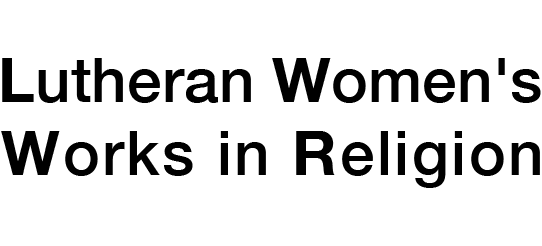Bibliography Author: Kari Kloos
CHURCH HISTORY AND HISTORICAL THEOLOGY
Kari Kloos "History as Witness: Augustine‘s Interpretation of the History of Israel in Contra Faustum and De Trinitate" In Augustine and History. Lanham, Md.: Lexington: 2008 : 31-51Augustine‘s anti-Manichean writings indicate a growing appreciation for the history of Israel as a witness to the one God. In particular, his exegetical response in the massive Contra Faustum demonstrates how a more serious engagement with the history of Israel shaped his theology.
CHURCH HISTORY AND HISTORICAL THEOLOGY
Kari Kloos Christ, Creation, and the Vision of God: Augustine’s Transformation of Early Christian Theophany Interpretation., Bible in Ancient Christianity 7 Leiden: Brill 2011Explores the theological underpinnings of ancient Christian theophany interpretation regarding polemic and the formation of Christian identity, the relationship between vision and spiritual transformation, and theological claims about knowing God through creation. Argues that Augustine‘s challenge to traditional claims that Christ appeared in the Old Testament theophanies demonstrates the critical and creative capacity of early Christian authors to adapt and transform exegetical traditions.
CHURCH HISTORY AND HISTORICAL THEOLOGY
Kari Kloos "Angels and Angel-like Beings: Medieval Times and Reformation Era" In Encyclopedia of the Bible and Its Reception. Berlin: Walter De Gruyter 2009An overview of medieval development of the theology of angels and of Reformation critiques.
CHURCH HISTORY AND HISTORICAL THEOLOGY
Kari Kloos "Angels and Angel-like Beings: Greek and Latin Patristics" In Encyclopedia of the Bible and Its Reception. Berlin: Walter De Gruyter 2009An overview of the post-biblical development of the theology of angels in patristic Greek and Latin sources.
CHURCH HISTORY AND HISTORICAL THEOLOGY
Kari Kloos "Christ the Revealer: Patristic Views of the Mediation of Christ in the Old Testament" In Studia Patristica. vol. 44, 2010 : 315-320Explores early Christian (2nd through 4th century) exegetical claims that Christ appeared in the Old Testament, arguing that similar ―audacious hermeneutical leaps‖ created continuity in periods of theological and spiritual crisis. However, managing such threats of discontinuity often created further problems.
CHURCH HISTORY AND HISTORICAL THEOLOGY
Kari Kloos "In Christ There Is Neither Male nor Female: Patristic Interpretation of Galatians 3:28" In Studia Patristica. vol. 39, 2006 : 239-244Explores different forms of ancient Christian (2nd to late 4th century) interpretation of Galatians 3:28, considering views on baptism, asceticism, and social hierarchy.
CHURCH HISTORY AND HISTORICAL THEOLOGY
Kari Kloos "Living in Paradox: Female Identity in Early and Medieval Christianity" In Journal of Lutheran Ethics. vol. 7, no. 7, July 2006 http://www.elca.org/What-We-Believe/Social-Issues/Journal-of-Lutheran-Ethics/Issues/July-2007/Living-in-Paradox-Female-Identity-in-Early-and-Medieval-Christianity.aspxExplores how early and medieval Christian authors defined female identity paradoxically, both identical to the male in spiritual dignity and inferior socially, ecclesially, and spiritually. The tension created by this paradox yielded both constructive and destructive results historically.
CHURCH HISTORY AND HISTORICAL THEOLOGY
Kari Kloos "Seeing the Invisible God: Augustine‘s Reconfiguration of Theophany Narrative Exegesis." In Augustinian Studies. vol. 36, no. 2, 2005 : 396-420Examines how Augustine challenged ancient Christian claims that Christ appeared in the Old Testament theophanies of Genesis and Exodus, arguing that his developing Trinitarian theology reframed Christological exegesis.

